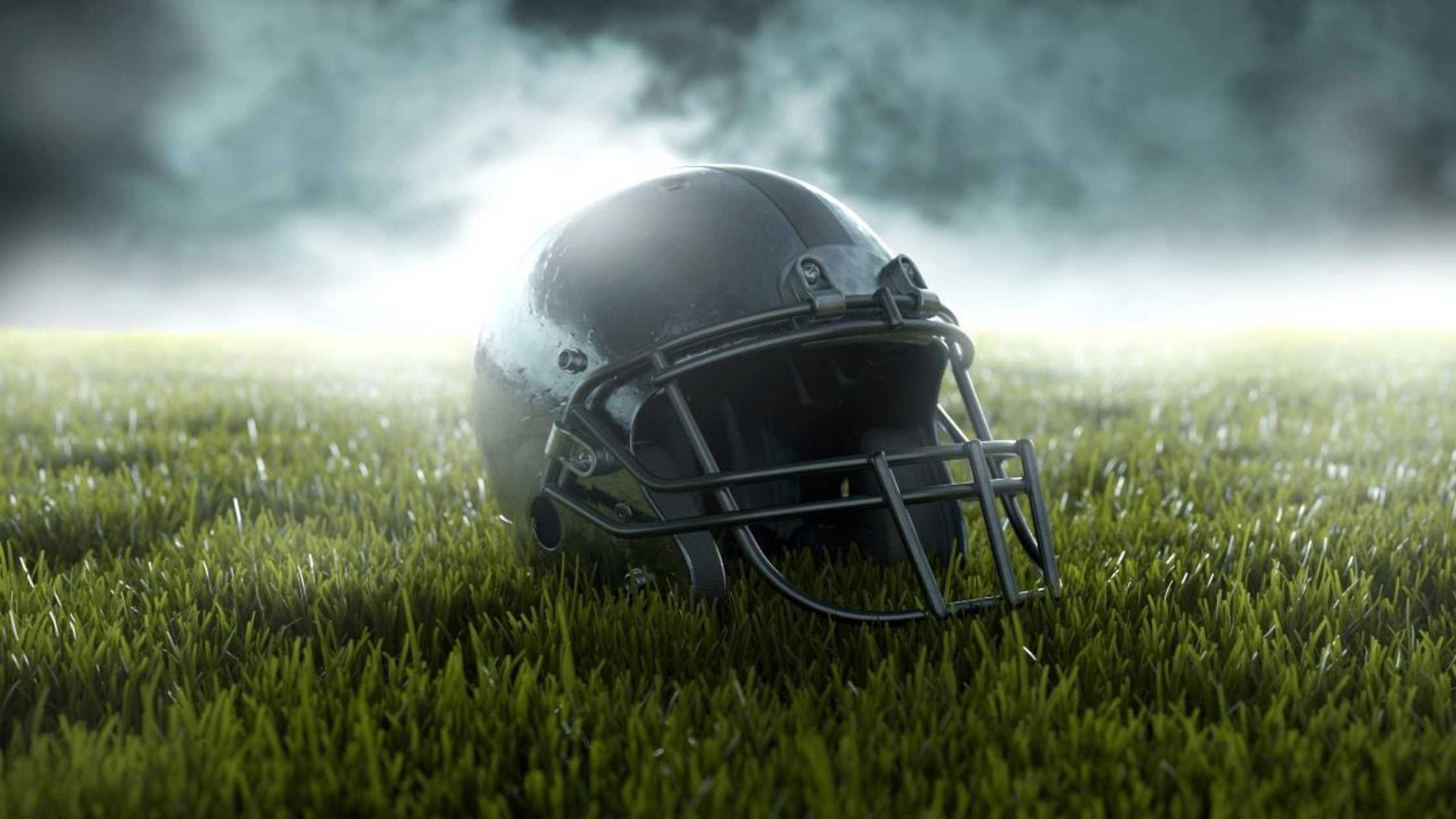Marijuana has become part of the hype and hoopla running up to Sunday’s Super Bowl.
But it’s not because the league suspended any players for failing or missing testing for such banned substances as marijuana, as it has in past seasons with star players such as Josh Gordon, Von Miller, and Santonio Holmes.
Instead, the NFL announced this month that it awarded $1 million to medical researchers at the University of California, San Diego, and the University of Regina in Canada to investigate the effects of cannabinoids on pain management and neuroprotection from concussion.
The studies “may lead to the discovery of data-based evidence that could impact the pain management of our players,” Dr. Allen Sills, the NFL’s chief medical officer, said in a news release unveiling the studies.
The announcement underscores how the NFL’s cannabis policy has progressed from what many observers considered draconian to a more open-minded attitude.
The evolution is a boon for several NFL players.
Many reportedly consume cannabis for pain and other reasons and have less – but not zero – reason to worry about losing their careers.
At the same time, the NFL’s conditional embrace of cannabis could benefit the marijuana industry in three ways:
- Providing cannabinoid treatments is an avenue to the enormous pain management and concussion-injury markets.
- Expanding public awareness by acknowledging marijuana’s potential to be a legitimate medicine.
- Tapping NFL players to become brand ambassadors for individual companies.
“It’s a huge driver. The NFL as a league is so influential. It generates more revenue than baseball, basketball, and hockey combined,” said Tye Heckler, founder of Seattle-based Heckler Branding, whose clients have included Starbucks and cannabis producer Tilray.
NFL influence
The NFL commands enormous audiences.
During the 2020 season, the average television viewership of a regular-season NFL game was about 14.9 million viewers, according to New York-based Statista, while data from New York-headquartered Nielsen shows the Super Bowl typically garners 100 million-plus global viewers.
While marijuana industry stakeholders would welcome changes to the NFL’s cannabis policy, observers note that the American public’s growing support for legalization is responsible for the league’s softening attitude toward the plant.
“I think it will earn a lot of goodwill with the players. But I think public opinion changes allowed the NFL to take this stance,” Ricky Williams, a former NFL player who started his second cannabis company, told MJBizDaily’s “Seed to CEO” podcast.
Paul Haagen, co-director of the Center for Sports Law and Policy at Duke University Law School, agreed.
“The NFL, in general, responds to changes in public attitudes related to drug use, whether performance enhancing, medicinal or recreation. If there were significant shifts in public attitudes, I would expect those shifts to be reflected in the NFL’s drug policies and enforcement,” Haagen told MJBizDaily via email.
“Absent dramatic findings related to the potential for cannabis in pain treatment and control, this looks like an area in which I would expect the NFL to seek to reflect public attitudes and understandings rather than to shape and influence them.”
Medical research
The $1 million research grants were orchestrated by the NFL and the NFL Players Association (NFPA) Joint Pain Management Committee and the NFL Research and Innovation Committee.
The UC San Diego study is titled “Effects of Cannabinoids on Pain and Recovery from Sports-Related Injuries in Elite Athletes: A Randomized Clinical Trial.”
As part of the study, “elite athletes will vaporize THC, CBD, and combined THC/CBD formulations following game-related injuries, with outcomes monitored via remote phone apps,” according to the release.
The research “should shed further light upon the many anecdotal reports that cannabis helps reduce post-competition pain,” Dr. Mark Wallace, director of the Center for Pain Medicine at UC San Diego Health, said in the release.
The University of Regina study is titled “Naturally Produced Cannabinoids for Pain Management and Neuroprotection from Concussion and Participation in Contact Sports.”
Researchers plan to explore whether CBD and THC can manage pain and reduce opioid use in athletes suffering from post-concussion syndrome.
Dr. Patrick Neary, professor in the Faculty of Kinesiology and Health Studies at the University of Regina, said in the release that the study “has the potential to change not only the lives of current and former NFL players but also the lives of anyone who may suffer from a concussion.”
Both research teams believe cannabinoids can be an alternative to opioids to manage pain.
If these studies show that cannabis helps players with pain, it could help companies that are developing cannabinoid formulations for pain to tap into a gigantic market.
According to Allied Market Research, an Oregon-based market research and advisory firm, the global pain management drugs market was valued at $71.4 billion in 2019 and is projected to reach $91.6 billion by 2027.
Opioids hold the maximum market share in pain-management drugs, the report said.
That’s critical because many NFL players and people outside professional sports believe cannabis is a better pain-treatment option than opioids, which skeptics say are far more addictive than cannabis and often render users unable to function.
NFL player testaments of being saved from opioids by cannabis can also go a long way in legitimizing the plant’s therapeutic potential.
“Telling our stories redefines cannabis. When we tell stories, that changes minds,” said Lisa Buffo, founder and CEO of the Cannabis Marketing Association. It’s hard to deny someone who advocates for something based on their experience.
“It’s mighty when you have strong men speaking about their vulnerability to pain and anxiety and how cannabis helped them.
“To hear these athletes talk about how the plant has helped them allows people to see cannabis as something else than just a recreational party drug.”
Additional cannabis acknowledgement
The league has acknowledged cannabis in other ways.
Under the most recent collective-bargaining agreement ratified by the NFL and the NFL Players Association (NFLPA) in March 2020, testing will be limited to the first two weeks of training camp instead of from April to August as was done previously.
The threshold to trigger a positive test is higher, making it harder to test positive. Players are no longer suspended for positive marijuana tests but are instead referred to treatment programs.
While many players would like to see the NFL drop cannabis testing altogether, the moves to limit testing and raise the threshold for positive test triggers are still welcomed as progress.
“When I was going through my issues with the NFL, nobody said anything positive. It was that I was bad, and they needed to throw the book at me,” Williams said on the “Seed to CEO” podcast.
“The fact that stories are being written and there’s a positive headline, a positive sentiment between the NFL and cannabis, I think it’s great.”
That said, the NFL has not fully embraced cannabis.
NFL athletes are not allowed to participate in the two NFL-sponsored studies.
According to the release announcing the studies, “elite professional athletes outside of the NFL” will be included.
It explained that the studies “will have no impact on the jointly administered Policy and Program on Substances of Abuse under the current NFL-NFLPA collective bargaining agreement.”
Brand ambassadors
An estimated 50% to 90% of NFL players still use marijuana, primarily for pain management but also for performance enhancement, according to many former players.
That can help market cannabis to a broader audience of consumers who are either fans of or have some familiarity with the NFL.
“Elite athletes using cannabis helps ease the process,” branding expert Heckler said. “People look up to athletes because of their physical abilities and the great shape they’re in.
“They are brand ambassadors for the cannabis industry. And if players are using cannabis for pain relief, and the NFL is letting it happen, that makes a statement.”
Shane McKee, vice president of product development at Shango – an Oregon-based multistate operator that counts former New Orleans Saints All-Pro Kyle Turley as a minority investor – agreed.
NFL players “obviously have a lot of people that look up to them as role models,” McKee said. “If they’re using it for medicine, I think it normalizes it and possibly encourages others to try it to see if it works for them.”
Disclaimer: https://mjbizdaily.com/nfls-changing-perception-of-marijuana-sharing-center-stage-with-super-bowl





